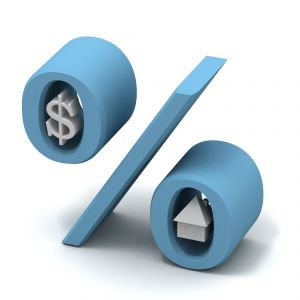 Morgan Stanley recently released research that pointed to Australia having a glut of housing, rather than the much touted housing shortage. Who is right?
Morgan Stanley recently released research that pointed to Australia having a glut of housing, rather than the much touted housing shortage. Who is right?
I have heard about this housing shortage since 2003 and wondered where all the tent cities were being erected in Australia to justify these claims. And maybe teenagers couch surfing were adding to the confusion.
Housing Shortage, Fact or Myth: Australia goes from an estimated 228,000 housing shortfall to a 341,000 home glut!
So how did we get this 569,000 housing turnaround whist building around 140,000 homes a year, and demolishing many older homes?
The inconvenient truth? The estimated 228,000-home shortfall, cited by everyone from the construction industry to economists at the major banks as evidence for why prices remain so high, may, in fact, be an excess of 341,000 homes, according to Morgan Stanley.
Where are all of Australia’s Tent Cities?
Have you ever wondered how these all the people are living whilst we catch up building that 228,000 new homes to fill the housing void? And where are the tent cities that must be sprouting like mushrooms in our Capital Cities. I see them is the US all the time. 228,000 homes short would mean 750,000 people living on the streets? Or maybe we count couch surfers? and teenagers that have a tiff with Mum and dad and decide to camp out in the car when surf’s up?
Vacant homes
Asians and in particular the Chinese love to buy residential real estate in Australia, but many of them don’t care for the rent as, and the upkeep that they invite when used by tenants. So there are over 100,000 homes built where nobody is living in them. Ditto for long-term holiday travellers. Many of these homes are never rented out to tenants.
Then there are the homes build in places nobody wants to be anymore. Country towns that become ghost towns. Ever heard of homes for $1 or free building blocks in these towns? I used to know a farmer who kept buying neigbouring properties for the land. He never used the homes. He had several vacant.
Spin pays the bills and sells homes
Whether the new housing figures are accurate will only become clear in time, as house prices either level off because real estate is scarce, or prices fall and attract more scrutiny about the fundamentals of the market.
The absence of robust and consistent house price data
There is no clear, undisputed authority of information in this area crucial to the economy. But house price movements should let us know what impact elevated or falling property prices have on other aspects of the economy because we don’t have a long history of clean, robust and comparable data to rely on.
In the US, the S&P Case-Schiller index, which measures changes in prices of the same properties over time, and that is only 25 years old. So where do investment gurus pull 100 year figures from?
Long range price growth figures: Where do they come from? Advertised asking prices or real sold prices, including demolished homes.
The problem I have with any long-range figures is that they only rate the homes that are still standing,and over 100 years maybe more than half the housing stock may be demolished. So counting just the best ones that are left is a hardly a way to determine the appreciation of housing generally. Its taking a generalisation and making it a specific. But what about the home that was bought, and later demolished. Surely its now worthless and represents a loss of capital? When these homes are included in the overall picture, actual returns surely lower.
In Australia, Residex’s repeat sales index goes back to 1991, in the middle of a Sydney house price correction on the back 17% pa interest rates, and just before the two-decade run-up of housing values began. So these figures and a deliberate distortion of the true picture in my view. Prior to that Sydney home prices collapsed near 50%.
In a similar distortion we have all seen share market growth starting from after the 1987 Share Market crash.
One thing for certain is that it is unwise to expect the “boom conditions” to persist indefinitely. That is an interesting term. I thought the boom finished in 2010?
In 2010, Reserve Bank governor Glenn Stevens appeared on breakfast TV to warn viewers it was a mistake to ”assume a risk-less, no-brainer, and even guaranteed way to prosperity is just to leverage property”.
Well surprisingly since that time, Most of Australia’s new jobs generated have been full-time, and wages are growing too, and whilst I too believe that rental property is still a good route to wealth, we need to be told the full facts and the real figures so we can make informed decisions. Is that too much to ask?
Source: Mr Mortgage


You must be logged in to post a comment.